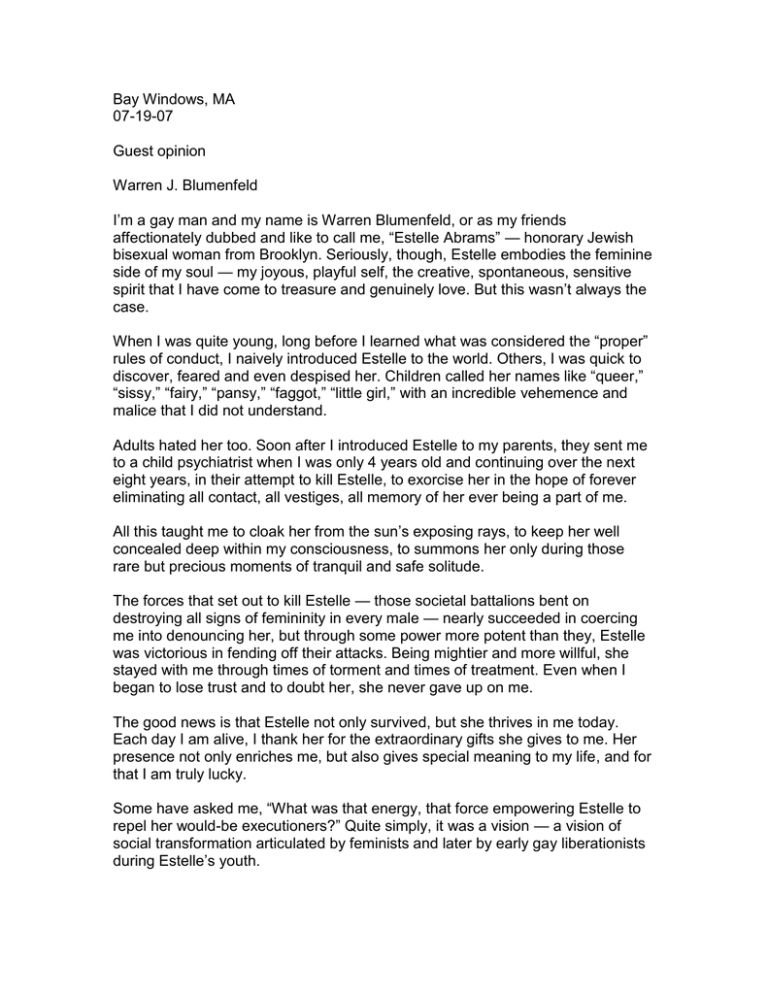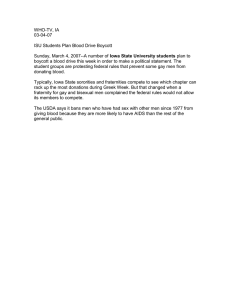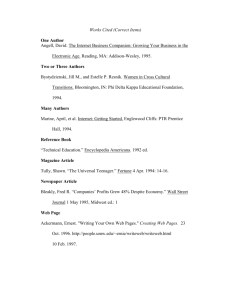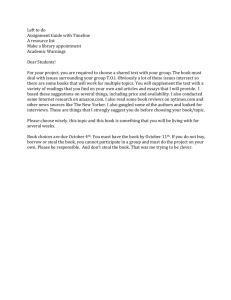Bay Windows, MA 07-19-07 Guest opinion
advertisement

Bay Windows, MA 07-19-07 Guest opinion Warren J. Blumenfeld I’m a gay man and my name is Warren Blumenfeld, or as my friends affectionately dubbed and like to call me, “Estelle Abrams” — honorary Jewish bisexual woman from Brooklyn. Seriously, though, Estelle embodies the feminine side of my soul — my joyous, playful self, the creative, spontaneous, sensitive spirit that I have come to treasure and genuinely love. But this wasn’t always the case. When I was quite young, long before I learned what was considered the “proper” rules of conduct, I naively introduced Estelle to the world. Others, I was quick to discover, feared and even despised her. Children called her names like “queer,” “sissy,” “fairy,” “pansy,” “faggot,” “little girl,” with an incredible vehemence and malice that I did not understand. Adults hated her too. Soon after I introduced Estelle to my parents, they sent me to a child psychiatrist when I was only 4 years old and continuing over the next eight years, in their attempt to kill Estelle, to exorcise her in the hope of forever eliminating all contact, all vestiges, all memory of her ever being a part of me. All this taught me to cloak her from the sun’s exposing rays, to keep her well concealed deep within my consciousness, to summons her only during those rare but precious moments of tranquil and safe solitude. The forces that set out to kill Estelle — those societal battalions bent on destroying all signs of femininity in every male — nearly succeeded in coercing me into denouncing her, but through some power more potent than they, Estelle was victorious in fending off their attacks. Being mightier and more willful, she stayed with me through times of torment and times of treatment. Even when I began to lose trust and to doubt her, she never gave up on me. The good news is that Estelle not only survived, but she thrives in me today. Each day I am alive, I thank her for the extraordinary gifts she gives to me. Her presence not only enriches me, but also gives special meaning to my life, and for that I am truly lucky. Some have asked me, “What was that energy, that force empowering Estelle to repel her would-be executioners?” Quite simply, it was a vision — a vision of social transformation articulated by feminists and later by early gay liberationists during Estelle’s youth. Earlier — much earlier — in the Middle Ages, the fairies (those men accused of same-sex eroticism) were rounded up, bound, tossed on the ground as if kindling and set ablaze igniting women accused of witchcraft who were secured above. Later, the reverse would be true. Catching the spark of feminist thought and theory, fairies joined together exploding conventional notions of gender, most notably definitions of masculinity. During the early 1970s, I was an active member of Gay Liberation Front, in Washington D.C., which formed the leading edge of a movement rising like a phoenix from the ashes of the Stonewall Inn in New York City. We held early meetings at Grace Church, the Washington Free Clinic in Georgetown, and All Souls Church on 16th Street, until we rented a brownstone on S Street, in Northwest for the establishment of a Gay Liberation Front living collective. Meetings provided a space for gays, lesbians and bisexual women and men to come together and put into practice what feminists had taught us — that the “personal is indeed the political.” We laughed and we cried together. We shared our ideas and our most intimate secrets. We dreamed our dreams and laid our plans for a world free from all the deadly forms of oppression, and as we went along, invented new ways of relating. For the men, we came to consciousness of how we had been stifled as males growing up in a culture that taught us to hate the woman within, that taught us that if we were to be considered worthy, we must be athletic, independent, assertive, domineering, competitive, that we must bury our emotions deep within the recesses of our souls. Looking back over the years, as our visibility has increased, as our place within the culture has become somewhat more assured, much certainly has been gained, but also, something very precious has been lost. That early excitement, that desire — though by no means the ability — to fully restructure the culture, as distinguished from mere reform, seems now to lay dormant in many sectors of our communities. Today, looking over what seems to be the major focus of the mainstream movement, I see four main themes, what I am calling the “Four Ms” of the mainstream movement. These Ms are: 1. Marriage Rights, 2. Military Inclusion, 3. Media Visibility and 4. Making Money. While these are laudable goals, I believe that if we are going to achieve a truly equitable society, we must reach higher, wider and broader. I do remain hopeful, however, for I believe that bisexual women and men and transgenderists today are on the cutting edge of the discourse on gender, having the greatest potential to bring us back into the future — a future in which the Estelles (indeed, anyone on the gender spectrum) everywhere will live freely, unencumbered by other’s notions of behavior, one in which the “feminine” and “masculine” — as well as all the qualities on the continuum in between — can live and prosper in us all. So therefore I say, let us not work only toward lifting the ban against gay, lesbian, and bisexual people in the military, but let us also work toward lifting the ban against our transcending and obliterating the gender status quo. Let us not limit our efforts to defeating homophobia, heterosexism, sexism, biphobia and the many other categories of oppression, but let us also work toward conquering personal, institutional, and societal forms of transphobia and its offshoot, what some of us have labeled “effemiphobia” — that insidious and dehumanizing fear and hatred of anything even hinting at the feminine in males, which is, as we all know, basically the fear and hatred of females. Let us continue to work on issues around same-sex marriage and domestic partnership, but let us not fail to put efforts into strengthening a partnership between our masculine and feminine qualities making us all whole, integrated human beings. If indeed it is true, as the old saying goes, that the fish is the last to see or even feel the water because it is so pervasive, then from our vantage point at the margins, we have a special opportunity, indeed a responsibility, to serve as social commentators, as critics, exposing and highlighting the rigid gender roles that dampen and saturate our environment, and to challenge the culture to move forever forward and to grow. This is my view toward true and lasting liberation. I hope it is part of yours too. Warren J. Blumenfeld is Assistant Professor in the Department of Curriculum and Instruction at Iowa State University. He can be reached at wblumen@iastate.edu.





